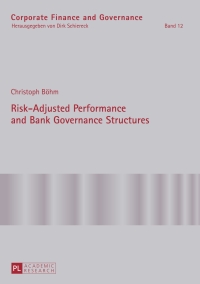Question
Q2. (a) Capital budgeting for a foreign project is considerably more complex than the domestic. Elaborate on FIVE (5) common problems that multinational enterprise (MNE)
Q2.
(a) Capital budgeting for a foreign project is considerably more complex than the domestic. Elaborate on FIVE (5) common problems that multinational enterprise (MNE) may encounter in their capital budgeting process.(10 marks) (b) In the early nineties, China decided that by 2000, it would boost its electricitygenerating capacity by more than half. To achieve that, the country planned to offer direct equity investments to foreigners of at least $40 billion out of the roughly $100 billion tab. However, the State Council of the Peoples Republic of China has announced that, contrary to investors expectations, foreign investors are not be permitted to hold majority stakes in large power-plant or equipment-manufacturing ventures in the country. In addition, the State Council has insisted on limiting the rate of return that foreign investors could earn on power projects. Moreover, this rate of return would be in local currency without official guarantees that the local currency could be converted into dollars and it would not be permitted to change in line with the rate of inflation in the country. As a contingency measure, the State Council also said that if the country failed to raise capital from the direct equity investments from foreign investors, it would raise the necessary funds by way of issuing bonds overseas. However, these bonds would not carry the "full faith and credit of the Chinese government.
(i) What problems do you foresee the foreign investors will face if they are to invest in these China's electricity-generating projects directly? (6 marks)
(ii) How credible is the Chinese government's contingency measure of issuing bonds overseas to raise the required capital? (7 marks)
(c) GoodtoExport Sdn Bhd (G2Ex) of Malaysia currently has 60 foreign orders outstanding, with a typical order averaging at $18,000 due to be settled in 45 days. G2Ex is considering the following two alternatives to protect itself against credit risk on these foreign orders:
I. Request a letter of credit. The cost would be $80 plus 0.75% of the invoice amount. To remain competitive, G2Ex would have to absorb the cost of the letter of credit; OR
II. Factor the receivables. The factor would charge a nonrecourse fee of 1.20%.
Assuming 360 days in a year, which alternative would you recommend to G2Ex? Why? (7 marks)
Step by Step Solution
There are 3 Steps involved in it
Step: 1

Get Instant Access to Expert-Tailored Solutions
See step-by-step solutions with expert insights and AI powered tools for academic success
Step: 2

Step: 3

Ace Your Homework with AI
Get the answers you need in no time with our AI-driven, step-by-step assistance
Get Started


